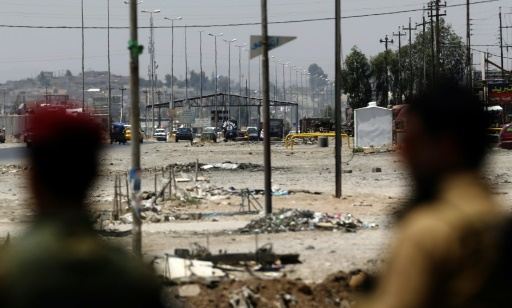
Top Iraqi officials ignored ample warnings of an impending attack on second city Mosul and grossly mismanaged the ensuing crisis that saw it seized by jihadists, a parliamentary report obtained by AFP says.
The Islamic State group took control of the northern city in Nineveh province on June 10 last year, but the disaster could have been avoided if senior officers and officials had acted competently and paid attention to multiple detailed intelligence reports warning of the attack.
The report names a number of top officials, including ex-premier and current vice president Nuri al-Maliki, as responsible for Mosul’s fall.
“Those who were informed about the security situation in the province knew… that this situation would surely happen,” said the report, the product of a parliamentary inquiry that has been referred to the judiciary for possible legal action.
“All the information clearly indicated that,” the report said. “The only surprise was the speed with which the military units collapsed.”
“The poor performance of the security commanders who led the battle… destroyed the last hope for the city’s resistance. These commanders made a number of grave mistakes that accelerated the security collapse.”
Maliki did not have an accurate assessment of the danger in Nineveh because he relied on “misleading reports” he did not confirm, and left it up to commanders to decide how to proceed after military units collapsed, it said.
But the military leaders Maliki chose were not competent to make that decision, among other glaring deficiencies.
Maliki selected “incompetent leaders and commanders under whose leadership all types of corruption were practised,” the report said.
This includes the practice of soldiers and police splitting salaries with higher-ups in exchange for not having to work, leaving units understaffed.
Commanders also did not hold members of the security forces to account for corruption, “widening the gap between the people and the security services.”
And the military as a whole was fundamentally undermined by Maliki, who lacked “committment to building the capabilities of the new Iraqi army.”
Units were formed “without concern for basic training and quality arming and focusing on numbers in the overall force of the army at the expense of competence and training and quality,” the report found.
Maliki has dismissed the report as being “of no value”.
After overrunning Mosul, IS seized Nineveh province and then swept south, overrunning a third of the country.
Backed by air strikes from a US-led coalition against IS, Baghdad’s forces have regained ground in two provinces north of the capital, but much of western Iraq remains under the jihadists’ control.



